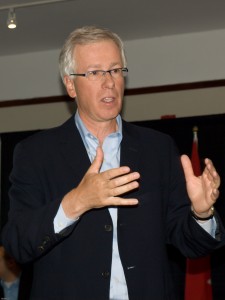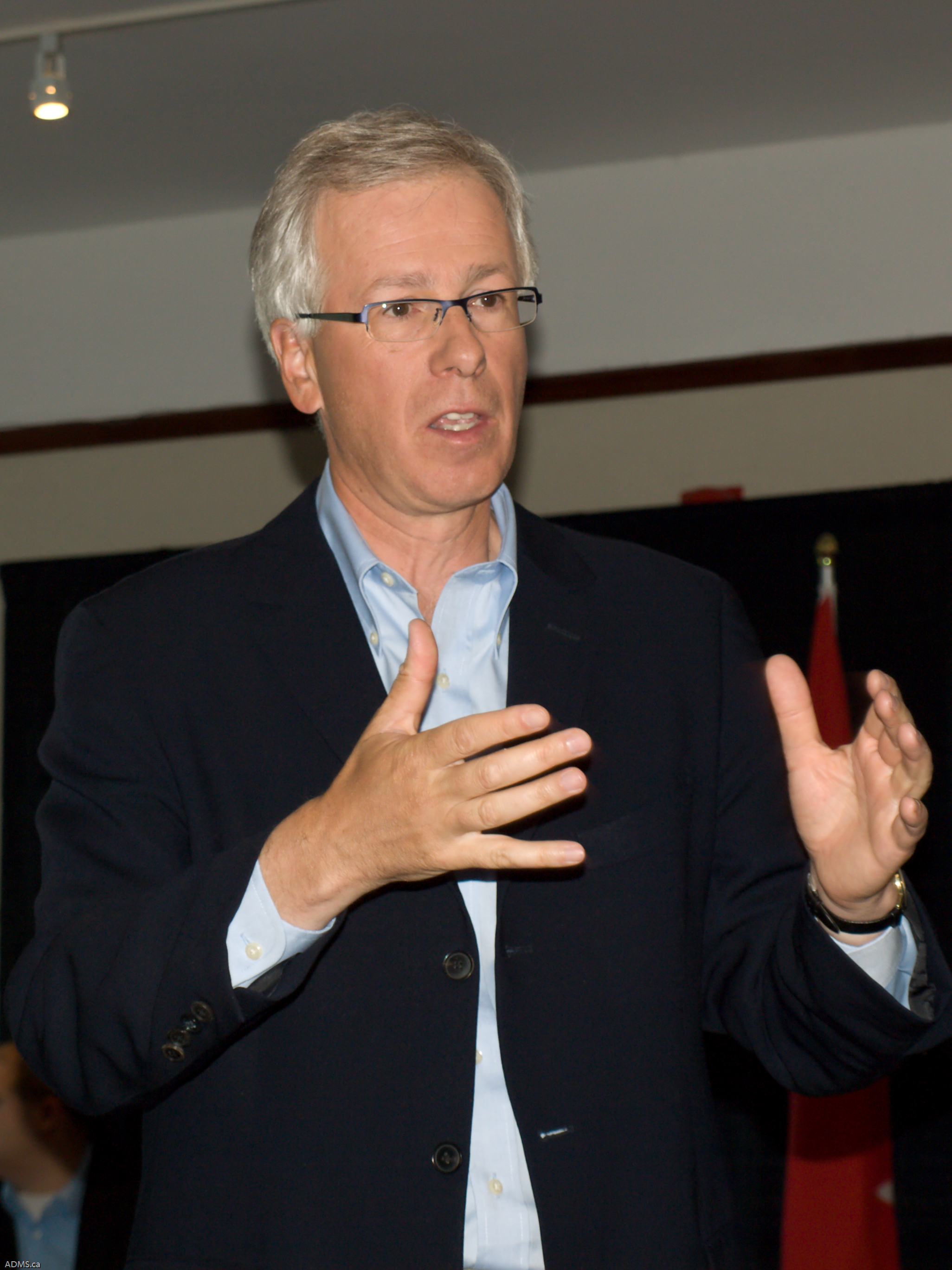By Joe Johnson (The Cascade) – Email
Print Edition: February 26, 2014

Stéphane Dion, member of the Liberal party of Canada and former party leader, owns a dog by the name of ‘Kyoto’. He’s also a man strongly pursuant of a cleaner environment.
It was a decade ago that Dion was Minister of the Environment and in the 2008 election under his leadership, ‘The Green Shift’ was a core platform of the Liberal party. Long has Dion been an advocate for a world-wide carbon price. He talks about it here and will continue with his visit to UFV.
Let’s start off with your trip to UFV. What are you going to be speaking about?
It’s an honour for me to speak and to be invited. The topic that I am asking to speak about is climate change, the crisis of climate change, and how much humanity is not doing enough.
What are some of the solutions?
There are a lot of solutions that we are doing as human beings, but not enough. The consequence of what we’re doing today, if we were only maintaining the current policies, would bring a warming of the planet for the end of the century that may easily be over 4°C. According to scientists, if we go over 2°C it’s already really dangerous; 4°C may mean something catastrophic for the planet.
If we want to do more we need to invest much more in clean technologies, clean deployment of these technologies, and one of the ways to convince us to do more is a carbon price. A worldwide carbon price that would focus a lot of the efforts on all the solutions that are low-carbon intensive.
Do you believe, then, it’s not too late to reverse global warming or climate change?
The more we wait, the more it will be difficult to reverse because now we are really at the turning point. What is really concerning for me is that international negotiations have stalled and climate change is less and less in the mind of the different governments.
In international negotiations how do you get other countries on board that are developing?
We need to have a worldwide carbon price that will give an incentive to use cleaner coal or switch to cleaner sources of energy than coal. As long as [a regulated] price of carbon does not exist, it’s really difficult to motivate humanity enough to implement, now, the policies that would save the future of our children.
How do you put a price on carbon?
If it were a worldwide negotiation it would be very easy to do. You may say “the price will go up in the next five years by $10 a tonne every year.” Some countries will have a price higher than others because they are richer and more ready. But everybody will have to pay some … If you don’t want to pay the price, other countries will have the right to impose a tariff to your products. And let me tell you, this will be a very strong discipline incentive.
Will it be difficult to get countries to bind to that?
Ideally, it would be great if all the countries were bound to that. But in practice, 20 countries are responsible for more than 90 per cent of the emissions of the world.
So when is the next step to make that happen?
I don’t know. I don’t see any driver, any country willing to take the lead on that. I know that the United Nations will invite all the leaders of the world, in New York, next fall to discuss climate change. That would be an opportunity if there was a leader ready to say “we need to do something bold, we need to reorient the negotiations.” The way that we are doing them is not the way to succeed.
If the Liberal party wins the next election would Canada be a driver?
I don’t know. What I will speak about is my views [rather] than the view of any party. My party certainly would do better than Mr. Harper’s tragic, very bad, policies that he’s implementing; I have no doubt that Justin Trudeau would do better.
How have the Conservatives been on [climate change policies]?
Awful. They cut a lot of programs to promote clean energy. They did regulate but their regulations were barely better than the ones of the US, or sometimes slower to implement the ones in the US. They are very proud to say that emissions went down but emissions went down in all OACD countries, all developed countries, almost … The main reason why the emissions went down in Canada is because the McGuinty government [Ontario] closed coal power plants. And that has been the main change we have implemented in Canada, plus the carbon tax you have in B.C.
Would you suggest the carbon tax is a good policy for other countries or provinces to develop?
If we were able to negotiate a worldwide carbon price, countries would be free to choose to raise the price through a tax or through cap and trade — it would be their choice, but the fiscal system is the most convenient one. It’s not difficult to do, you don’t need to have a large bureaucracy, and you are able — with the revenues — to decrease taxes elsewhere as I proposed in my 2008 Greenshift plan.
Can you discuss that a little bit more?
It was a plan to raise the carbon tax, as you did in B.C., and to cut the income taxes for families, individuals, and businesses accordingly. It was a revenue-neutral carbon price. The beauty of it is that it is good for the environment because you put the price on pollution. It is good for the economy because you decrease the taxes on productivities, investments, hard work … and it was good also for the social fabric of the country because we were cutting the taxes for low-income Canadians and low-income families.
What’s your position the Northern Gateway Pipeline?
I would say that it’s sad to see the environmental groups focusing so much on this issue. Because the reality is that pipeline, or no pipeline, Canadian oil will go in the United States. If it’s not by pipeline it will be by barge, by trucks, by train with more ecological costs and danger than if by a pipeline. The issue is not pipeline, yes or no. The issue is to decrease our dependency on oil. That’s the key point.
This interview has been edited for length and clarity.


